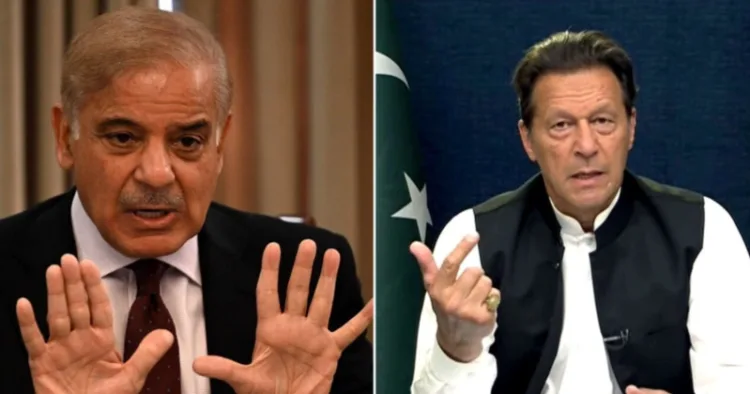The questions about the legitimacy of military trials of civilians in light of Article 8 were the highlight of Thursday’s hearing in the Supreme Court of Pakistan. A constitutional bench took up the hearing on appeals against military trials concerning the May 9, 2023, attacks on army installations all over the country. That was the day when former Prime Minister Imran Khan was arrested and it led to a spontaneous reaction from workers of his Tehreek Insaaf Party (PTI).
Incidentally, Article 8 appears in Chapter 1, Fundamental Rights, of the Pakistan Constitution. It says that any laws inconsistent with or in derogation of Fundamental Rights would be void. Its first clause says that any law, or any custom or usage having the force of law, in so far as it is inconsistent with the rights conferred by this Chapter, shall, to the extent of such inconsistency, be void.
It also says that the State shall not make any law which takes away or abridges the rights so conferred and any law made in contravention of this clause shall, to the extent of such contravention, be void.
The Federal government headed by Prime Minister Shehbaz Sharif wants civilians to be tried in military courts. It is in cahoots with Pakistan Army Chief General Asim Munir and wants the military courts to give harsh punishments to PTI supporters to strengthen its hold over power structures in Pakistan. It needs to be mentioned here that a five-judge bench had on October 23, 2023, nullified the trials of civilians by military courts.
Headed by Justice Aminuddin Khan, the seven-member constitutional bench resumed the hearing on a number of Intra-Court Appeals (ICAs) against this order. Justice Jamal Khan Mandokhail, Justice Muhammad Ali Mazhar, Justice Syed Hasan Azhar Rizvi, Justice Naeem Akhtar Afghan, Justice Musarrat Hilali, and Justice Shahid Bilal Hassan were part of the bench.
The five-judge bench order had upset the plans of the government which was hoping that with the help of military courts, it would get a stranglehold on Pakistan. However, the order of the Supreme Court judges created a problem for it was a major relief for Imran’s PTI. This is something not to the liking of either the Pakistan Army, or the Federal government.
Justice Mandokhail wondered how an individual, not subject to the Pakistan Army Act, 1952, could be deprived of fundamental rights guaranteed under the Constitution if tried under the army’s disciplinary structure. He noted that the army discipline would be adversely affected in case ordinary civilians were also brought into its ambit, according to a report in Dawn.
Justice Mandokhail also questioned how a person who was not in the armed forces could come under its discipline. However, the counsel contended that if law permitted, military discipline would be applied to civilians. The counsel contended that the court did not have the authority to annul the provisions of the PAA.
Justice Mandokhail said army discipline would apply to someone in the military just like the agriculture department’s rules would apply to someone working in that department. He questioned as to how the army act could be applied to someone who was not its part. Will it not be a violation of Article 8 to bring an unrelated person under the military discipline? he wondered.
A civilian who kills a soldier will always be tried in the ordinary court of law; besides, attacking military installations was also a crime to be tried under the Anti-Terrorism Act (ATA), Justice Mandokhail observed.
Justice Mandokhail observed that the entire case revolved around Article 8, whereas Justice Muhammad Ali Mazhar wondered whether the five-judge bench had declared the provisions of the PAA to be in conflict with Article 8. He also asked as to what was the justification given in the decision about the conflict between the provisions of the Army Act and Article 8.
During the hearing, Justice Hilali wondered whether lawyers were allowed in the military court trial and whether a complete record was also provided to the accused in the military court. The Defence Ministry counsel said the accused in the military court were provided with a lawyer as well as all relevant materials.
Justice Hilali also sought details of the rules under which the trial of civilians is being conducted in the military courts, as well as details of FIRs registered against those involved in the May 9 violence.



















Comments